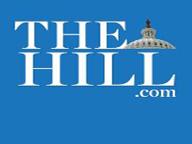Faculty News
—
Professor Nicholas Economides on Greece's delay in making payments to the International Monetary Fund
—

Excerpt from Bloomberg -- "'The delay in the payment to the IMF is an escalation of the confrontation,' Nicholas Economides, an economics professor at New York University’s Stern School of Business. 'It increases the risk of bankruptcy and Grexit.'"
Faculty News
—

Excerpt from Bloomberg -- "'The delay in the payment to the IMF is an escalation of the confrontation,' Nicholas Economides, an economics professor at New York University’s Stern School of Business. 'It increases the risk of bankruptcy and Grexit.'"
Faculty News
—
NYU Global Research Professor Ian Bremmer's book, "Superpower," is featured
—

Excerpt from The Wall Street Journal -- "The political scientist and global risk strategist Ian Bremmer, a foreign-affairs columnist at Time, has written a book asking Americans themselves to decide what our policy should be, and offering what he sees as three central options. 'America,' he writes, 'will remain the world’s only superpower for the foreseeable future. But what sort of superpower should it be? What role should America play in the world? What role do you want America to play?'"
Faculty News
—

Excerpt from The Wall Street Journal -- "The political scientist and global risk strategist Ian Bremmer, a foreign-affairs columnist at Time, has written a book asking Americans themselves to decide what our policy should be, and offering what he sees as three central options. 'America,' he writes, 'will remain the world’s only superpower for the foreseeable future. But what sort of superpower should it be? What role should America play in the world? What role do you want America to play?'"
School News
—
Stern's course on Cuba and its economy is featured; MBA student Erica Rose is quoted
—

Excerpt from BusinessBecause -- "NYU Stern ran a similar program ... with around 80 of Stern’s MBA students flocking to Havana. Stern enlisted the help of the Ludwig Foundation, a non-profit that is trying to build links between the US and Cuba. A Stern course last year included lectures by Cuban professors, field trips and talks by Cuban economists. 'Before this trip, Cuba was a country known to me only through high school history classes and the media,' said Stern MBA Erica Rose."
School News
—

Excerpt from BusinessBecause -- "NYU Stern ran a similar program ... with around 80 of Stern’s MBA students flocking to Havana. Stern enlisted the help of the Ludwig Foundation, a non-profit that is trying to build links between the US and Cuba. A Stern course last year included lectures by Cuban professors, field trips and talks by Cuban economists. 'Before this trip, Cuba was a country known to me only through high school history classes and the media,' said Stern MBA Erica Rose."
Faculty News
—
Professor David Yermack on the addition of concerts to Walmart's shareholder meeting
—

Excerpt from Yahoo! Finance -- "'When companies distract people with sideshows and entertainment, it’s pretty clear that they’re trying to draw attention from some of their labor practices,' [Yermack] said."
Faculty News
—

Excerpt from Yahoo! Finance -- "'When companies distract people with sideshows and entertainment, it’s pretty clear that they’re trying to draw attention from some of their labor practices,' [Yermack] said."
Faculty News
—
In an op-ed, Professor Michelle Greenwald discusses Dominique Ansel's innovation techniques
—

Excerpt from Forbes -- "Dominique Ansel is undoubtedly the most celebrated and innovative pastry chef in the Western Hemisphere and for good reason. Aside from creating the Cronut phenomenon, he has innovated in so many other ways. He combines magic, entertainment, craft, nostalgia, analogies, complexity, surprise, shapes, interesting presentations, contrasting textures and temperatures, and wow factor into his creations."
Faculty News
—

Excerpt from Forbes -- "Dominique Ansel is undoubtedly the most celebrated and innovative pastry chef in the Western Hemisphere and for good reason. Aside from creating the Cronut phenomenon, he has innovated in so many other ways. He combines magic, entertainment, craft, nostalgia, analogies, complexity, surprise, shapes, interesting presentations, contrasting textures and temperatures, and wow factor into his creations."
Press Releases
—
Tensie Whelan Joins NYU Stern to Establish New Center for Sustainable Business
—

New York University Stern School of Business today announced that Tensie Whelan, currently the president of the Rainforest Alliance and a key leader in the realm of environmental activism and stewardship, will join the Stern faculty to establish and lead a new Center for Sustainable Business beginning in January 2016.
Press Releases
—

New York University Stern School of Business today announced that Tensie Whelan, currently the president of the Rainforest Alliance and a key leader in the realm of environmental activism and stewardship, will join the Stern faculty to establish and lead a new Center for Sustainable Business beginning in January 2016.
Faculty News
—
NYU Global Research Professor Ian Bremmer discusses China's increasing global economic power
—

Excerpt from TIME -- "China continuing to grow economically and challenging the American economic system does automatically mean less American influence. And the question is, how is the US going to respond to that? One way to respond to it is by saying, you know what, we can't do global anymore. We'd like to do a global trade agreement, but we can't. We have to support coalitions of the willing. So the more attractive the United States looks as a market, the more over time, China is likely to reform its own economic systems to challenge the US less even as it continues to grow."
Faculty News
—

Excerpt from TIME -- "China continuing to grow economically and challenging the American economic system does automatically mean less American influence. And the question is, how is the US going to respond to that? One way to respond to it is by saying, you know what, we can't do global anymore. We'd like to do a global trade agreement, but we can't. We have to support coalitions of the willing. So the more attractive the United States looks as a market, the more over time, China is likely to reform its own economic systems to challenge the US less even as it continues to grow."
Faculty News
—
Professor Roy Smith on the compensation of Wall Street CEOs
—

Excerpt from Bloomberg -- "'The odds are much, much lower for a bank CEO becoming a billionaire than a guy going to a hedge fund or private equity,' said Roy Smith, a professor at New York University Stern School of Business and a former Goldman Sachs Group Inc. partner who started on Wall Street in 1966. 'The real lucre in this business has always been on the transactional side. The CEOs of Wall Street have to deal with litigation, regulation and the relatively short tenures you have at the top of the pile.'"
Faculty News
—

Excerpt from Bloomberg -- "'The odds are much, much lower for a bank CEO becoming a billionaire than a guy going to a hedge fund or private equity,' said Roy Smith, a professor at New York University Stern School of Business and a former Goldman Sachs Group Inc. partner who started on Wall Street in 1966. 'The real lucre in this business has always been on the transactional side. The CEOs of Wall Street have to deal with litigation, regulation and the relatively short tenures you have at the top of the pile.'"
Faculty News
—
Research Scholar Sarah Labowitz on the murder charges against Rana Plaza factory owners in Bangladesh
—

Excerpt from Quartz -- "'The announcement of charges is an important first step toward accountability,' Labowitz told Quartz. 'But there is still a long way to go before anyone is brought to justice.'"
Faculty News
—

Excerpt from Quartz -- "'The announcement of charges is an important first step toward accountability,' Labowitz told Quartz. 'But there is still a long way to go before anyone is brought to justice.'"
Faculty News
—
Professor Thomaï Serdari on Valentino's film, "A Tribute to Iconic Values"
—

Excerpt from Luxury Daily -- "'Maria Grazia Chiuri and Pierpaolo Piccioli are a modern version of what used to be the lone creative genius, which Valentino, the man, and other great couturiers used to be,' said Thomaï Serdari, Ph.D., founder of PIQLuxury and adjunct professor of luxury marketing at New York University, New York. 'Today, we see a much more collaborative approach to creativity even in the great famed houses of high fashion.'"
Faculty News
—

Excerpt from Luxury Daily -- "'Maria Grazia Chiuri and Pierpaolo Piccioli are a modern version of what used to be the lone creative genius, which Valentino, the man, and other great couturiers used to be,' said Thomaï Serdari, Ph.D., founder of PIQLuxury and adjunct professor of luxury marketing at New York University, New York. 'Today, we see a much more collaborative approach to creativity even in the great famed houses of high fashion.'"
Faculty News
—
Research Scholars Shlomo (Solly) Angel and Patrick Lamson-Hall's research tracking NYC neighborhood population densities is featured
—

Excerpt from The Atlantic -- "The [visual] comes courtesy of NYU urban scholars Solly Angel and Patrick Lamson-Hall. It tracks neighborhood population densities on the island from 1800 to 2010 using historical maps, aerial photographs, and census ward statistics. The basic narrative sees density cluster first in Lower Manhattan, then slowly reach northward and spread out more evenly, then generally subside closer to modern times—waves of growth that, spliced back to back, make the city seem like it’s breathing."
Faculty News
—

Excerpt from The Atlantic -- "The [visual] comes courtesy of NYU urban scholars Solly Angel and Patrick Lamson-Hall. It tracks neighborhood population densities on the island from 1800 to 2010 using historical maps, aerial photographs, and census ward statistics. The basic narrative sees density cluster first in Lower Manhattan, then slowly reach northward and spread out more evenly, then generally subside closer to modern times—waves of growth that, spliced back to back, make the city seem like it’s breathing."
Faculty News
—
Professor Holger Mueller's research on firm leverage and unemployment during the Great Recession is cited
—

Excerpt from Bloomberg -- "Companies that loaded up on debt during the credit boom of the early-to-mid-2000s were more likely to fire workers and shut down stores once the 2007-2009 recession hit than were companies that hadn’t levered up, according to a National Bureau of Economic Research working paper issued in April. That’s because they couldn’t raise additional funds. The weakened balance sheets among the more highly levered firms were 'instrumental in the propagation of shocks' during the crisis, Xavier Giroud and Holger Mueller wrote in the report."
Faculty News
—

Excerpt from Bloomberg -- "Companies that loaded up on debt during the credit boom of the early-to-mid-2000s were more likely to fire workers and shut down stores once the 2007-2009 recession hit than were companies that hadn’t levered up, according to a National Bureau of Economic Research working paper issued in April. That’s because they couldn’t raise additional funds. The weakened balance sheets among the more highly levered firms were 'instrumental in the propagation of shocks' during the crisis, Xavier Giroud and Holger Mueller wrote in the report."
Faculty News
—
In an op-ed, Professor Nicholas Economides argues that a mediocre agreement is better than bankruptcy for Greece
—

Excerpt from CNBC -- "What would a good deal contain? Besides the fiscal issues, a good deal should emphasize the microeconomic reforms. It should reduce the huge and inefficient state sector that weighs down on the private sector and the taxpayers. Pensions should become proportional to contributions. The procurement mechanisms of the state should become competitive so that lower prices are achieved and corruption is reduced. Greece should proceed with the privatization of trains, airports, ports, and the energy sector. The "closed sectors" (such as pharmacies) should be opened to competition. The labor market should be liberalized. The business taxes and bureaucratic procedures should be reduced to attract new investment."
Faculty News
—

Excerpt from CNBC -- "What would a good deal contain? Besides the fiscal issues, a good deal should emphasize the microeconomic reforms. It should reduce the huge and inefficient state sector that weighs down on the private sector and the taxpayers. Pensions should become proportional to contributions. The procurement mechanisms of the state should become competitive so that lower prices are achieved and corruption is reduced. Greece should proceed with the privatization of trains, airports, ports, and the energy sector. The "closed sectors" (such as pharmacies) should be opened to competition. The labor market should be liberalized. The business taxes and bureaucratic procedures should be reduced to attract new investment."
Faculty News
—
Professor Scott Galloway discussess Instagram's plans to open its feed to advertisers
—

Excerpt from The New York Times -- "'Who are brands obsessed with? High-income teens and people in their 20s,' said Scott Galloway, a New York University marketing professor and chairman of L2, a research firm that studies how consumer brands use social media. 'Those people are leaving Facebook. Where are they going? Instagram. Facebook has shored up its rear flank with this important cohort with Instagram.'"
Faculty News
—

Excerpt from The New York Times -- "'Who are brands obsessed with? High-income teens and people in their 20s,' said Scott Galloway, a New York University marketing professor and chairman of L2, a research firm that studies how consumer brands use social media. 'Those people are leaving Facebook. Where are they going? Instagram. Facebook has shored up its rear flank with this important cohort with Instagram.'"
Faculty News
—
In an op-ed, Professor Michael Posner discusses Britain's threat to repeal the Human Rights Act and its potential ramifications
—

Excerpt from Al Jazeera -- "More important, in the last 20 years the Council of Europe has dramatically expanded to include more than two dozen members from the former Soviet bloc and elsewhere. Many of these relatively new democracies still struggle to build national systems that can reliably protect their people. It is also for the people in these places that the United Kingdom needs to keep its seat at the table and be a leader, not a outlier, and work to strengthen the protection of fundamental human rights throughout Europe. Cameron may wish to exert his nationalist bona fides after his electoral victory, but jettisoning Britain’s European human rights commitments isn’t a productive way to do so."
Faculty News
—

Excerpt from Al Jazeera -- "More important, in the last 20 years the Council of Europe has dramatically expanded to include more than two dozen members from the former Soviet bloc and elsewhere. Many of these relatively new democracies still struggle to build national systems that can reliably protect their people. It is also for the people in these places that the United Kingdom needs to keep its seat at the table and be a leader, not a outlier, and work to strengthen the protection of fundamental human rights throughout Europe. Cameron may wish to exert his nationalist bona fides after his electoral victory, but jettisoning Britain’s European human rights commitments isn’t a productive way to do so."
School News
—
MBA student Erin Morris is profiled
—

Excerpt from Teen Vogue -- "Becoming a beauty professional is a glamorous goal for many young women, but positions on the STEM side of things--that's science, technology, engineering, and math--tend to be overlooked. 'There are roles ranging from product developers to color chemists,' says Erin, who discovered her niche through engineering internships at L'Oreal before being hired there full-time. 'In STEM there's always something new to do or create--we're transforming the future of beauty.'"
School News
—

Excerpt from Teen Vogue -- "Becoming a beauty professional is a glamorous goal for many young women, but positions on the STEM side of things--that's science, technology, engineering, and math--tend to be overlooked. 'There are roles ranging from product developers to color chemists,' says Erin, who discovered her niche through engineering internships at L'Oreal before being hired there full-time. 'In STEM there's always something new to do or create--we're transforming the future of beauty.'"
School News
—
Director of Admissions Heather Daly shares résumé tips for prospective executive MBA students
—

Excerpt from Top MBA -- "We encourage EMBA applicants to focus on clarity and organization when putting a résumé together. While the admissions committee is familiar with many different industries, make sure the bigger picture of what you do is not lost in too many details. Review your résumé for dense jargon or acronyms that might be less meaningful to an industry outsider."
School News
—

Excerpt from Top MBA -- "We encourage EMBA applicants to focus on clarity and organization when putting a résumé together. While the admissions committee is familiar with many different industries, make sure the bigger picture of what you do is not lost in too many details. Review your résumé for dense jargon or acronyms that might be less meaningful to an industry outsider."
Faculty News
—
Professor Jeanne Calderon's research on the use of EB-5 capital is featured
—

Excerpt from The Real Deal -- "Investors have poured more than $3.7 billion into several dozen projects around New York City via the EB-5 program since 2009. And while the industry lacks a comprehensive database, The Real Deal zeroed in on some of the city’s largest and most notable projects to date, using data culled by researchers at New York University and referenced in a report by Professor Jeanne Calderon and attorney Gary Friedland."
Faculty News
—

Excerpt from The Real Deal -- "Investors have poured more than $3.7 billion into several dozen projects around New York City via the EB-5 program since 2009. And while the industry lacks a comprehensive database, The Real Deal zeroed in on some of the city’s largest and most notable projects to date, using data culled by researchers at New York University and referenced in a report by Professor Jeanne Calderon and attorney Gary Friedland."
Faculty News
—
Professor Thomaï Serdari discusses using "luxury" as a marketing tactic
—

Excerpt from Macleans -- "'People are very impressionable,” says Thomaï Serdari, an adjunct associate professor at New York University’s Stern School of Business. 'Everyone is adding the adjective of luxury. You see this all the time with condos. They’re advertised as luxury, but you walk in and the walls are so cheap.'"
Faculty News
—

Excerpt from Macleans -- "'People are very impressionable,” says Thomaï Serdari, an adjunct associate professor at New York University’s Stern School of Business. 'Everyone is adding the adjective of luxury. You see this all the time with condos. They’re advertised as luxury, but you walk in and the walls are so cheap.'"
Faculty News
—
In an op-ed, Professor Ralph Gomory argues for the reversal of "fast track" legislation that ties together Investor State Dispute Settlement and trade
—

Excerpt from The Hill -- "Once out in the light of day ISDS [Investor State Dispute Settlement] will perish. This is the outcome that 'fast track' seeks to avoid. We have here a dagger aimed at the very heart of democracy. We should not give up our national system of laws based on a constitution and a long legal history. We should reject 'fast track,' and if we fail at that we should fight on and reject TPP [Trans-Pacific Partnership]. TPP ties together a contentious trade pact with a process to protect corporate profits that is above our democratic processes. We should stand up for democracy."
Faculty News
—

Excerpt from The Hill -- "Once out in the light of day ISDS [Investor State Dispute Settlement] will perish. This is the outcome that 'fast track' seeks to avoid. We have here a dagger aimed at the very heart of democracy. We should not give up our national system of laws based on a constitution and a long legal history. We should reject 'fast track,' and if we fail at that we should fight on and reject TPP [Trans-Pacific Partnership]. TPP ties together a contentious trade pact with a process to protect corporate profits that is above our democratic processes. We should stand up for democracy."
Faculty News
—
Professor Michelle Greenwald discusses companies' shifts towards healthy food
—

Excerpt from Eyewitness News -- "Marketing professor Michelle Greenwald said Americans are beginning to become more aware of their health, looking for natural foods without artificial ingredients. She said customers are even willing to pay more for healthier products. 'Getting back to more natural ingredients,' she said. 'It’s a quality of life issue that’s kind of an affordable indulgence.'"
Faculty News
—

Excerpt from Eyewitness News -- "Marketing professor Michelle Greenwald said Americans are beginning to become more aware of their health, looking for natural foods without artificial ingredients. She said customers are even willing to pay more for healthier products. 'Getting back to more natural ingredients,' she said. 'It’s a quality of life issue that’s kind of an affordable indulgence.'"
Faculty News
—
Professor Dolly Chugh's research on managerial decision making is highlighted
—

Excerpt from Harvard Business Review -- "Work by Max Bazerman and Dolly Chugh on the concept of 'bounded awareness' has identified two common decision-making errors related to managers’ use of information. First, managers often overlook information that could improve their decision-making....Second, managers often allow information that is irrelevant to the decision at hand to influence their choice."
Faculty News
—

Excerpt from Harvard Business Review -- "Work by Max Bazerman and Dolly Chugh on the concept of 'bounded awareness' has identified two common decision-making errors related to managers’ use of information. First, managers often overlook information that could improve their decision-making....Second, managers often allow information that is irrelevant to the decision at hand to influence their choice."
Faculty News
—
Research Scholar Sarah Labowitz points to retailers and brands closely monitoring worker safety at factories in Bangladesh
—

Excerpt from Los Angeles Times -- “'They see this as a necessary step to maintain the attractiveness of Bangladesh as a source country, particularly for the U.S. and European markets that are strategically important to the industry,' said Sarah Labowitz, co-director of the Center for Business and Human Rights at New York University’s Stern School of Business. 'The brands need Bangladesh too, because no other country can compete on volume and cost,' Labowitz said. 'So we are at a moment where dramatic change is possible because it’s in the interests of both Bangladesh and international companies.'"
Faculty News
—

Excerpt from Los Angeles Times -- “'They see this as a necessary step to maintain the attractiveness of Bangladesh as a source country, particularly for the U.S. and European markets that are strategically important to the industry,' said Sarah Labowitz, co-director of the Center for Business and Human Rights at New York University’s Stern School of Business. 'The brands need Bangladesh too, because no other country can compete on volume and cost,' Labowitz said. 'So we are at a moment where dramatic change is possible because it’s in the interests of both Bangladesh and international companies.'"
Faculty News
—
Professor Scott Galloway on political campaign merchandise
—

Excerpt from Marketplace -- "'It’s unlikely that any of these folks will end up in retail or merchandising,' says Scott Galloway, a clinical professor of marketing at NYU's Leonard N. Stern School of Business, of the candidates offerings, regardless of party affiliation. 'These aren’t what I’d call an inspiring product mix.'"
Faculty News
—

Excerpt from Marketplace -- "'It’s unlikely that any of these folks will end up in retail or merchandising,' says Scott Galloway, a clinical professor of marketing at NYU's Leonard N. Stern School of Business, of the candidates offerings, regardless of party affiliation. 'These aren’t what I’d call an inspiring product mix.'"
